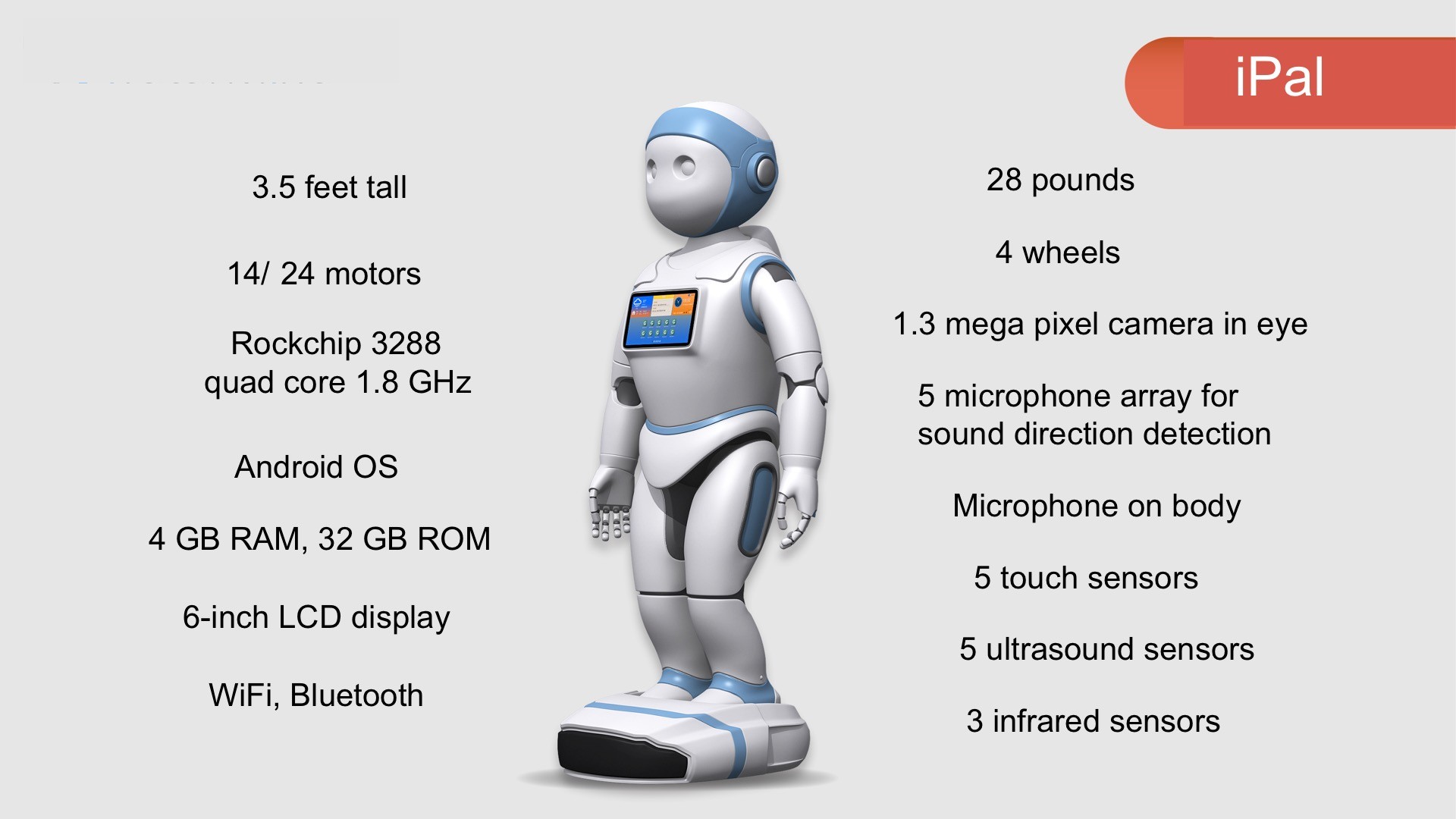It wasn’t really that long ago that robots were the stuff of science fiction. However, with the growth of computer technologies, many of us are starting to incorporate the automation of robotics into our daily lives. We don’t yet have snarky robot maids like Rosie from The Jetsons, but navigational tools direct us to our destinations and we’re a hair’s breadth away from consumer model self-driving cars.
That’s just the tip of the iceberg. Robotics are being used in commercial kitchens for food prep. They can vacuum our homes or alert us when someone is stealing an Amazon package off the porch. They can dispense medicine and perform complex surgical procedures (under human control).
Soon, they may also be able to act as human companions. Socially assistive robots are still in development, but as evidenced by the World Robotics Conference in Beijing last year, the reality may be closer than you think.
What is the iPal?
This child-sized, human-shaped robot in gleaming, white plastic comes from AvatarMind, a robotic technology company focused on the development of service robots. Their products feature sensors, motion control, artificial intelligence (AI), and more, all designed for functional and fulfilling interactions with people, from children and seniors, to those in retail and hospitality settings.

iPal is being developed with elder care in mind. For starters, these robots can remind elderly owners to eat, take needed medication, or exercise, but honestly, your average smartphone could do that. These devices can deliver something an iPhone can’t – companionship. iPal runs on an Android operating system, but includes natural language conversation, which means seniors can interact with it and receive relevant feedback, with some playful personality thrown in.
The 3.5-foot tall robot includes 24 motors in the neck, arms, wrists, and fingers for highly articulated motion, as well as dozens of sensors (infrared and ultrasound) that help it to navigate safely in both residential and commercial environments. There are even tactile sensors so the robot knows when and how humans are touching it, so it can respond to being patted on the head or tickled, for example.
It can sing, dance, carry on a conversation, and call for emergency services should a senior fall. For seniors that need minor assistance, it’s better than a smartphone, and for those who crave companionship, it’s a lot more convenient than a pet.
Other Socially Assistive Robots
Mabu
iPal isn’t alone. Other senior assistive technologies are nearing completion or already on the market. Mabu is a robot designed to track activity level and medication for patients with congestive heart failure, although plans for programs that will assist those with rheumatoid arthritis and late-stage kidney cancer are in the works. It has both verbal and text (on a screen) dialogue.
ElliQ Digital Companion
Then there’s ElliQ, a small, interactive device that plays music, prompts users to answer trivia questions, encourages outdoor activities, and offers suggestions for educational videos. It also facilitates social interactions with text, photo, and video messaging. It’s essentially an evolved smartphone or personal assistant.
Paro Therapeutic Robots
Another option is Paro, an interactive plush seal designed to offer emotional support by reacting to light, sound, touch, and temperature. It has been found to improve mood and may help those with issues like anxiety and depression.
Of course, robots aren’t a substitute for human interaction. They may be punctual and witty, but they can’t replace the nuance of human relationships. Still, new and improving technologies may help seniors to address health concerns, stay in their homes longer, and remain safe, all while offering fun interactions. That could be a real boon for seniors that want to remain independent and families that worry for the health and safety of elderly loved ones.
If you or your family member is considering in-home care as part of a plan to age in place, contact Family Matters In-Home Care today for a free consultation. Our team is dedicated to supporting your family and helping older adults enjoy life in the comfort of their own home for as long as possible.
Some of the services offered by Family Matter In-Home Care include: Alzheimer’s & Dementia Care, Bed & Wheelchair Transfer Assistance, Companionship, Housekeeping & Meal Preparation, Personal Care, Recovery Care, and Transportation.
Serving the San Francisco Bay Area and Greater San Diego, Family Matter In-Home Care has offices throughout California including: Campbell, CA, Roseville, CA, San Marcos, CA, and San Mateo, CA.